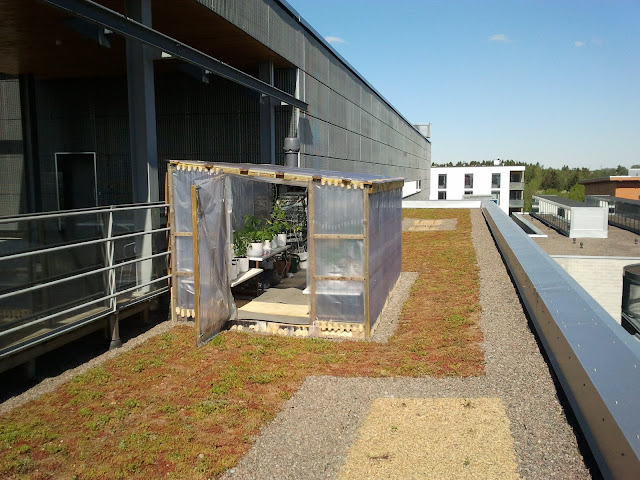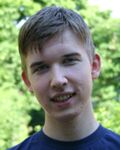Head of Studies Jaakko Kurhila to head Open University
The Head of Studies at the department, University Lecturer Jaakko Kurhila, has been elected to the post of director of the Open University at the University of Helsinki. It was a tough race: all in all, 39 applicants sought the post, some of them through the Mercuri Urval headhunting process. After a consultant evaluation, interviews, and aptitude assessments, the preparatory committee for the post, the steering committee for the Open University, and the rector of the university came to a unanimous decision to select Jaakko, and the contract is already being drawn up.
Being selected from this prestigious group of applicants, and after such a thorough process, is indisputable proof of the qualifications of Jaakko and the high esteem the academic community has for him. The department extends its warmest congratulations to Jaakko for this career development and is proud of the success of its protégé.
As it stands now, it looks like Jaakko (JK) will start his new job in February 2015. Since we will be parting ways so soon, the head of the department (JP) decided to perform the routine exit interview, so it wouldn’t be forgotten, what with Christmas and the New Year.
JP: This is a stupid but unavoidable question: Your feelings now?
JK: I feel positive and expectant. I’m very pleased with my new appointment in an organisation wholly dedicated to teaching, and I’m convinced it will be good. On the other hand, I had a nightmare last night about the ‘school hijinks’ awaiting me; I hope it was mainly due to the spicy Moroccan food I had last night.
JP: Why did you decide to apply for the post of director for the Open University?
JK: I think this sort of ventilation and rotation of thoughts and people is a vital part of academia, rather than stagnation. Furthermore, I received a hint from a well-informed source.
JP: The Open University offers ‘everyman’ higher education in accordance with the Helsinki University syllabus in about 90 different subjects. Have you had time to think about how you will be directing or improving the work of the Open University?
JK: I don’t have, nor should I have, any definite visions yet; first I have to analyse the university leadership’s strategy on the Open University’s role within education at the University of Helsinki. However, it’s quite clear that the Open University is better situated for concentrating on developing education than the regular departments, since there is no obligation to carry out research there.
JP: Now and then, there has been some strife between the Open University and regular departments, or at least their cooperation hasn't always gone very well. How will you be improving this cooperation?
JK: The collaboration between the departments and the Open University must be tightened by directing its work more towards degree students (and less towards the man on the street). Then the teaching could be financed by the Open University and implemented at the departments, using the regular support structures, like apprenticeship and technology, that are already part of their degree systems.
JP: Does this department have anything that you’d like to take with you to the Open University?
JK: The thinking behind teaching at this department is exemplary: first we consider what really needs to happen in support of learning, then we make a good plan for how to implement it, and finally we act on that plan.
JP: What will you miss?
JK: Lots. The best thing here is a good work community (though the work environment barometer has stayed above the average for the university at the Open University, too).
JP: What are you sure not to miss?
JK: Cycling to work from Kruununhaka to Kumpula in November. I’ll also be glad to get away from the Exactum architecture, which acts as an impediment to communal teaching and learning.
JP: I’d like to thank you on behalf of the department for this interview, and first and foremost for your fine work for the good of the department, not just as head of studies, but in your previous roles, as well. I hope you won’t detach yourself completely from the department, but will visit us now and then for a spot of civilisation.


